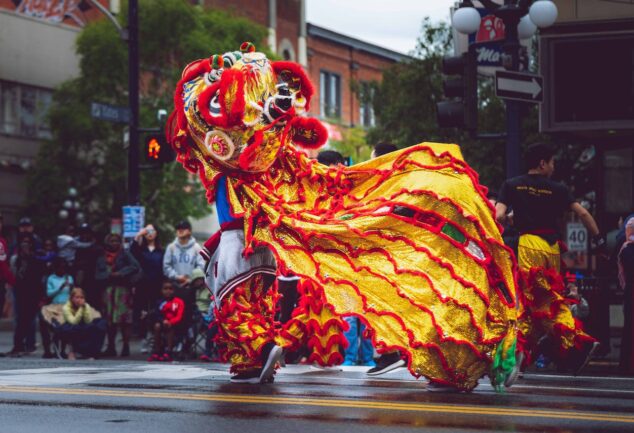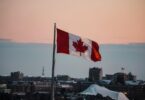Are you considering moving to Vancouver but worried about the cost of living?
It is no secret that Vancouver is one of the most expensive cities in Canada, but understanding the true cost of living is essential for making informed decisions.
Do not let the high prices deter you, as this comprehensive guide will break down the various expenses you can expect in Vancouver and provide tips on how to manage your budget effectively.


Vancouver consistently ranks as one of the most expensive cities in the world. From housing to groceries, the cost of living can be a shock to newcomers.
However, with proper planning and knowledge, it is possible to live comfortably in this beautiful city without breaking the bank.
To make the most of your life in Vancouver, it is crucial to have a clear understanding of the cost of living.
This guide will explore the major expenses you will encounter, such as housing, transportation, healthcare, and entertainment.
By equipping yourself with this information, you can navigate the Vancouver lifestyle and make informed choices that suit your budget and goals.
Overview of Vancouver
Vancouver, located on the west coast of Canada, is a vibrant and diverse city known for its stunning natural scenery and high quality of life. While the city offers a wide array of opportunities and amenities, it is also known for its relatively high cost of living.
With soaring housing prices and expensive consumer goods, Vancouver consistently ranks among the most expensive cities in North America. Despite these challenges, Vancouver offers its residents an unparalleled quality of life with its excellent public transportation system, access to outdoor activities, and diverse cultural experiences. In this article, we will delve into the various aspects of the cost of living in Vancouver, including housing, transportation, food, education, and more.
Whether you are an international student considering studying in Vancouver or a professional contemplating a move to this dynamic city, this article aims to provide you with a comprehensive overview of the cost of living in Vancouver.
What to Expect from Vancouver’s Cost of Living
Vancouver’s reputation for having a high cost of living compared to other Canadian cities is well-known. The city is known for its high cost of living, and a significant reason behind this is the expensive housing market.
Renting or buying a home in Vancouver, particularly in the city center or popular neighborhoods, can be financially demanding. Even a modest one-bedroom apartment can be quite expensive, making it difficult for many residents to find affordable housing options.
Another aspect that significantly impacts the cost of living in Vancouver is transportation expenses. Public transportation in Vancouver, while efficient, can be quite costly. Monthly passes for public transport can quickly add up, especially for those who rely on it for daily commuting.
Additionally, owning a car in Vancouver can be expensive due to high insurance rates, parking fees, and fuel costs.
Food prices in Vancouver are another factor to consider when assessing the cost of living. The cost for food, including groceries and dining out, is generally higher compared to the national average.
Fresh produce, seafood, and other grocery items tend to be pricier, while eating out at mid-range restaurants can quickly accumulate costs.
Overall, Vancouver’s cost of living is influenced by a combination of factors such as housing costs, transportation expenses, and food prices.
It is important for individuals planning to move to Vancouver or considering living in the city to be aware of these cost factors and plan their budgets accordingly to maintain a comfortable standard of living.
Housing
Housing stands out as one of the major contributors to Vancouver’s high cost of living. The city has gained a reputation for its exorbitant housing costs, whether you are looking to rent or buy a property.
The average price of a one-bedroom apartment in the city center far exceeds the national average, posing a considerable challenge for residents seeking affordable living options. Over the years, rental prices in Vancouver have continued to rise, making it increasingly difficult to find affordable housing options, especially in popular areas like North Vancouver.
On top of rent or mortgage payments, residents also have to contend with property taxes and utility expenses, further adding to the overall cost of living in the city.
Average Rental Prices in Vancouver
Vancouver is known for its stunning natural beauty and vibrant city life, but it is no secret that living in this Canadian gem comes at a cost. The average rental prices in Vancouver vary depending on the neighborhood area.
In popular neighborhoods like Kitsilano, Yaletown, and Coal Harbour, where you can enjoy the proximity to downtown and stunning views, the average cost for a one-bedroom apartment ranges from $2,000 to $2,500 per month.
For a two-bedroom apartment in these areas, the average cost is around $3,000 to $3,500 per month.
Comparing these prices with the national average, Vancouver’s rental market is on the higher end. The national average for a one-bedroom apartment is around $1,200 to $1,500 per month, while for a two-bedroom apartment, it ranges from $1,500 to $1,900 per month.
However, it’s important to note that Vancouver’s high rental prices are a reflection of its desirable location, stunning surroundings, and top-notch amenities that make it a highly sought-after city to live in.
Rent Prices by Neighborhoods in Vancouver
Rent prices in Vancouver can vary significantly across different neighborhoods. On average, the monthly rent for a one-bedroom apartment in Vancouver is around $2,100. However, there are notable variations in rent prices based on the neighborhood. Some of the top neighborhoods with the highest rent prices include Coal Harbour, Yaletown, and West End, where the average monthly rent for a one-bedroom apartment can go up to $2,500 or more.
These neighborhoods are popular for their proximity to the city center, stunning views, and vibrant lifestyle. On the other hand, neighborhoods like East Vancouver and Mount Pleasant offer more affordable rent options, with average monthly rents for a one-bedroom apartment ranging from $1,700 to $2,000.
These neighborhoods are known for their diverse culture, charming streets, and easy access to parks and recreational activities.

What is the Easiest Way to Immigrate to Canada?

Understanding Canada Visa Regulations: A Comprehensive Guide
Buying a Home in Vancouver
Purchasing a home in Vancouver can be quite overwhelming due to the substantial costs associated with housing in the city. The Vancouver housing market has experienced a substantial surge in prices in recent years, solidifying its position as one of the most expensive cities to buy property in Canada.
The selling price of homes in Vancouver can vary significantly based on factors like location, size, and included amenities. On average, potential homebuyers should anticipate spending approximately $1 million for a single-family home in Vancouver.
In addition to purchasing a home, there are various types of accommodation available for rent in Vancouver. Studio apartments are a popular choice for individuals or couples looking for a more affordable option.
These smaller units typically come with a combined living and sleeping space, along with a compact kitchen and bathroom. As the number of rooms increases, so does the price. One-bedroom apartments, on average, can cost around $1,800 per month in busy and expensive areas, while in normal areas, the average rental price drops to around $1,600 per month.
Two-bedroom apartments can range from $2,500 to $3,000 per month, and larger houses or luxury condos can exceed $5,000 per month in rent.


Transportation
Transportation in Vancouver is convenient and efficient, offering residents and visitors multiple options for getting around the city. The public transportation system, operated by TransLink, includes buses, SkyTrain, SeaBus, and West Coast Express trains, providing extensive coverage throughout the city and beyond.
With a convenient payment system using the Compass Card, commuters can easily navigate the city and access various modes of transportation. Vancouver is also known for its extensive network of bike lanes and dedicated cycling routes, making cycling a popular and eco-friendly option for many residents. Additionally, Vancouver has a well-maintained road infrastructure, making driving a viable choice for those who prefer to travel by car.
Overall, the transportation system in Vancouver offers convenience, accessibility, and a range of options for individuals to travel within and around the city.
Public Transportation Options in Vancouver
Vancouver offers a comprehensive range of public transportation options, making it easy for residents and visitors to navigate the city. With an extensive network of buses, trains, the SkyTrain, streetcars, and even ferries, getting around Vancouver is convenient and efficient.
The buses cover a wide area, reaching neighborhoods and suburbs, while the trains, including the SkyTrain, provide quick and reliable service throughout the city. Additionally, streetcars and ferries offer unique transportation experiences, allowing passengers to explore different parts of Vancouver.
For frequent travelers, monthly passes are available, providing unlimited access to all modes of public transport.
Considering the rising cost of fuel, opting for public transportation in Vancouver can be a cost-effective alternative for daily commutes. With the availability of various public transport options and the convenience of monthly passes, residents may find it more economical to rely on the city’s robust public transport network rather than owning a car.
Public transportation not only helps save money but also contributes to reducing traffic congestion and promoting sustainability. Whether you are a resident or a visitor, Vancouver’s public transportation options offer a convenient and affordable way to explore the city and its surrounding areas.
Cost of Public Transport in Vancouver
Public transport in Vancouver offers a convenient and efficient way to get around the city. The city is well-served by a variety of modes of transportation, including buses, SkyTrain, and ferries. Buses are the most common mode of public transportation, with an extensive network that covers the entire city.
The SkyTrain is a rapid transit system that connects various neighborhoods and suburbs, making it easy to travel longer distances quickly. Additionally, ferries are available for travel to the nearby islands.
In terms of pricing, Vancouver’s public transport offers both monthly passes and pay-as-you-go options. The cost of a monthly pass for adults is $98, which provides unlimited travel on buses, SkyTrain, and SeaBus (ferries) for a month.
For those who prefer a pay-as-you-go option, there is the Compass Card. With this card, fares are deducted automatically when tapping in and out of each mode of transportation. The fare for a single trip within the city is $2.95, and additional fees apply for crossing zones.
Vancouver also has various car-sharing services and taxis available for those who prefer private transportation, with pricing depending on the distance traveled and duration of the ride.
Other Modes of Transportation Available in Vancouver
In addition to a robust public transportation system, Vancouver offers several other modes of transportation for residents and visitors alike. The city has an extensive network of buses that cover various routes across Vancouver and its surrounding areas.
Trains and the SkyTrain are also popular choices for getting around the city quickly and conveniently. Streetcars and ferries provide unique transportation options, allowing people to explore different parts of Vancouver while enjoying picturesque waterfront views. For those looking for more flexibility, car-sharing services like Zipcar and Evo are readily available.
Additionally, ride-hailing platforms such as Uber and Lyft have become popular alternatives for getting around the city. The average costs for each mode of transportation vary, with public transportation being the most affordable option, and car-sharing services and ride-hailing platforms having slightly higher expenses.
Food and Entertainment
Vancouver is known for its diverse culinary scene, offering a wide range of dining options for all tastes and budgets. Whether you crave local seafood, international cuisine, or fusion dishes, there are plenty of restaurants, cafes, and food trucks to explore.
Prices at mid-range restaurants can vary, but you can expect to pay around $15 to $30 per person for a meal. For those who enjoy cooking at home, grocery prices in Vancouver can be higher compared to other Canadian cities. On average, a liter of milk costs around $2.50, a loaf of fresh white bread is about $2.30, and a dozen eggs are approximately $3.50.
When it comes to entertainment, Vancouver offers a vibrant cultural scene with various options to enjoy. Movie tickets at major theaters can range from $12 to $15 per person. The city is also home to numerous parks, hiking trails, and beautiful beaches, providing free outdoor entertainment options.
Additionally, there are music concerts, theater performances, and art exhibitions happening throughout the year, with ticket prices varying depending on the event. Overall, while food prices in Vancouver can be higher than the national average, the city offers a wide range of entertainment options to suit different preferences and budgets.
Average Food Costs in Vancouver
The average food costs in Vancouver have been on the rise, impacting the overall cost of living in the city. Grocery prices in Vancouver can be higher compared to other Canadian cities, making it important for residents to budget accordingly.
A liter of milk, for example, costs around $2.50, fresh white bread is about $2.30 per loaf, and a dozen eggs are approximately $3.50. These prices can add up quickly, especially for families or those on a tight budget.
However, there are ways for expats and residents alike to save money on groceries in Vancouver. One option is to venture out to the suburbs, where grocery prices tend to be slightly cheaper compared to the city center.
Another money-saving tip is to buy seasonal produce, as it is often more affordable and fresher compared to imported options. Additionally, buying in bulk and shopping at wallet-friendly markets or discount stores can also help reduce food costs and stretch your budget further.
By being strategic about where and what you shop for, it is possible to mitigate the impact of rising food prices and make your dollars go further in Vancouver.
Mid-Range Restaurant Prices in Vancouver
In Vancouver, mid-range restaurant prices can vary, but on average, a three-course meal for two people will cost around $110. This includes appetizers, main courses, desserts, and drinks. However, it is important to note that the true monthly cost of eating out at mid-range restaurants will vary depending on personal taste and lifestyle choices.
Some individuals may choose to dine out more frequently, while others may opt for more budget-friendly options. Ultimately, the cost of dining at mid-range restaurants in Vancouver offers a range of choices to suit different budgets and preferences.

best health insurance in Canada

Cultural Exchange Programs in Vancouver: A Comprehensive Guide
Grocery Shopping Tips for Saving Money in Vancouver
If you are an expat looking to save money on grocery shopping in Vancouver, there are several practical strategies you can implement. One of the best ways to save money is by shopping at farmer’s markets. Not only will you find fresh and locally sourced produce, but you will also often get better prices compared to supermarkets.
Another tip is to buy seasonal produce, as it tends to be more affordable and abundant. Additionally, purchasing in bulk at stores like Bulk Barn, Walmart, and Costco can help you save money in the long run. These stores offer discounted prices on bulk items, allowing you to stock up on essentials at a lower cost.
By implementing these strategies, you can reduce your grocery expenses and make the most out of your budget as an expat in Vancouver.
Vancouver is home to several wallet-friendly markets where expats can find affordable and high-quality produce. Granville Island Public Market is a popular destination for fresh fruits, vegetables, and other food products.
The market offers a wide range of options and allows you to support local vendors. Another great option is the Trout Lake Farmers Market, which operates during the summer months and offers a variety of fresh produce, dairy products, baked goods, and more. For those living in the West End, the Davie Village Farmers Market is a convenient option, offering a variety of local and organic products.
These markets not only provide affordable options but also give you a chance to experience the vibrant local food scene in Vancouver. According to Numbeo’s data, the average monthly cost of groceries in Vancouver is $399.56, making it important to find these wallet-friendly options to help reduce your expenses as an expat.
Utilities and Services
The cost of utilities and services in Vancouver can differ based on various factors. On average, residents can expect slightly higher prices for electricity, personal care, and recreation compared to the national average.
When it comes to utility costs, the size of the accommodation plays a significant role. For a family of two living in an 85m2 flat, the monthly costs for heating, electricity, water, and gas can range from $150 to $250, depending on usage and efficiency.
On the other hand, a single person living in a 45m2 studio apartment can expect to pay around $80 to $150 per month for the same utilities.
Electricity prices in Vancouver are approximately 10% higher than the national average, while personal care services, such as haircuts and salon treatments, can be slightly more expensive compared to other cities in Canada. Recreation activities, such as gym memberships and entertainment options, may also come at a slightly higher cost.
Overall, while the cost of utilities and services in Vancouver may be higher than the national average, it is important to consider the quality of life and the array of amenities available in the city.
In conclusion, while the cost of living in Vancouver may be higher compared to other cities, the quality of life and opportunities it offers are unparalleled. From stunning natural beauty to a thriving job market, Vancouver truly has it all. So, if you’re willing to invest in this vibrant city, the rewards will be worth every penny.
Embrace the West Coast lifestyle and make Vancouver your home – you will not regret it!




